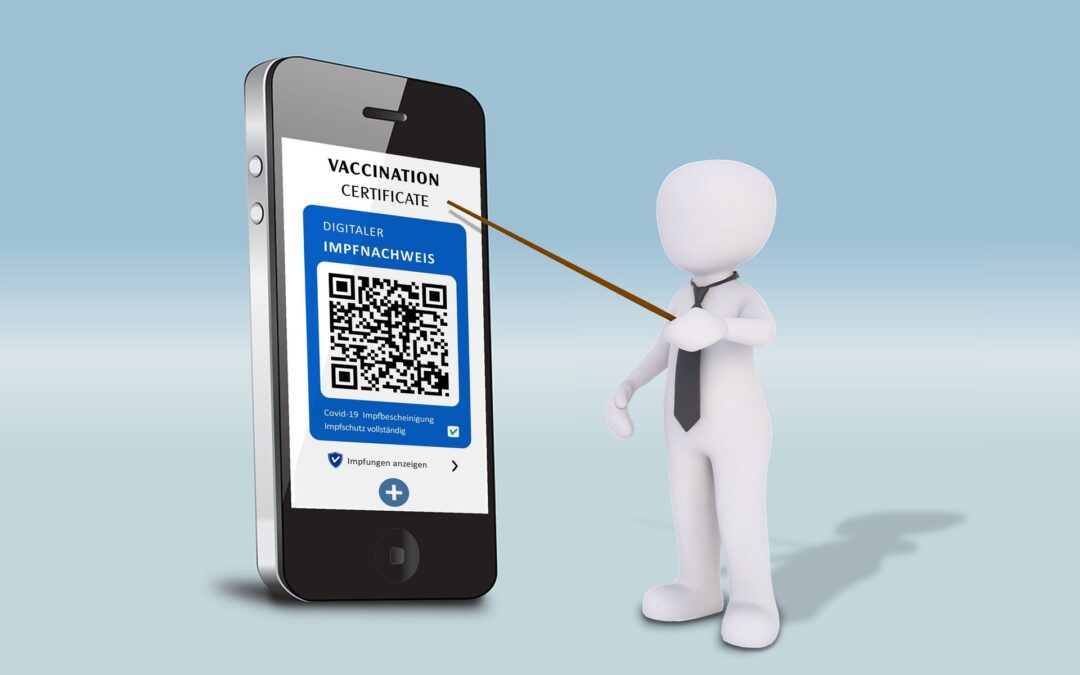In many facilities, the so-called 2G or 3G regulations are now in force (entry only for vaccinated and recovered or tested persons). Before one can enter here, a check of the certificate about vaccination, recovery or testing for Covid-19 takes place at an access control. But how does the testing of digital certificates work? Does this testing comply with data protection? You can find out here.
Digital verification of certificates
The easiest way to complete the test is to have the certificate in digital form. For both tests and vaccinations, this is possible via the corresponding apps such as the Corona warning app or the CovPass app. Organizers can scan a QR code in these apps (for example, with the CovPassCheck app) and then match the data displayed to them with a valid identification document of the guest. This is the easiest way to check the authenticity of the certificate and that the guest is also the person who has been vaccinated or tested.
The certificates stored by the guest in the app are saved offline by this app. When the organizer scans the QR code, the personal data is also read offline. The organizer must then compare this with an identification document. Simply showing the QR code without reading it out does not constitute sufficient verification. The fact that the guest can show a QR code on a cell phone says nothing about whether it meets the 2G or 3G regulations. After all, it may also be a third-party certificate.
Privacy concerns about digital verification of certificates
There are some concerns regarding the Data protection in the digital The audit of certificates. In particular, there are questions about how secure the data and the verification process are. After all, we are dealing with special category personal data (health data), the Processing often problematic is.
First of all, it can be said that the CovPassCheck app checks the read-out certificates and the associated personal data is not saved. As soon as the app is closed, the read data is deleted from the working memory.
For the check by scanning the QR code, the devices of the guest and the organizer do not even have to be online. This again shows that there is no online check either. The check can even be performed in flight mode. One thing to keep in mind for users of the Corona Warning app, however, is that if Bluetooth, WLAN and location detection are turned off, the contact tracking function will also stop working. The CovPass app does not offer such contact tracking anyway and is only used to store certificates.
It should be noted that the same procedure can be used to check a QR code on paper. Pharmacies, for example, issue such a code.
Conclusion on the digital certificate
The digital vaccination certificate is a secure and fast solution to verify compliance with 2G or 3G regulations in a privacy-compliant manner.
Safer is the digital certificate Despite the offline check, there are now repeated cases of fake paper vaccination passports coming into circulation. Official information from the Robert Koch Institute states that a complete check of this kind only takes 20 seconds. If guests are advised to have the digital certificate and a piece of ID ready, this is also easy to implement.
